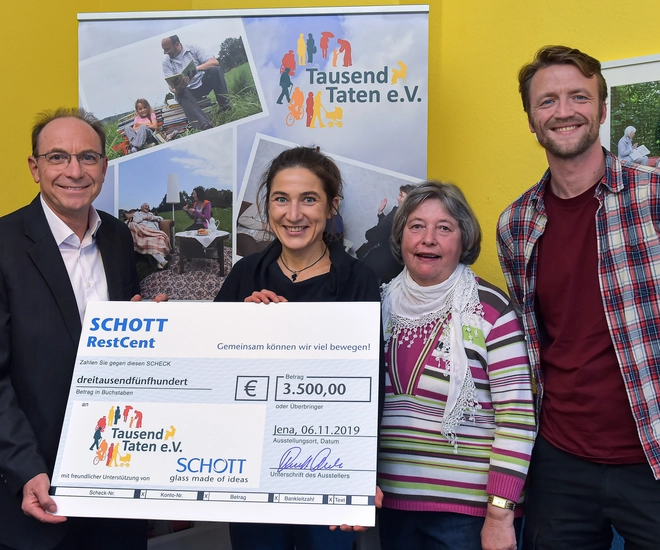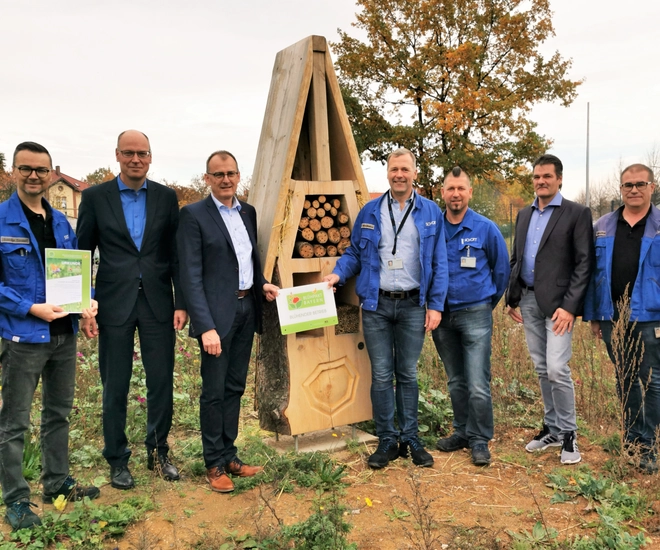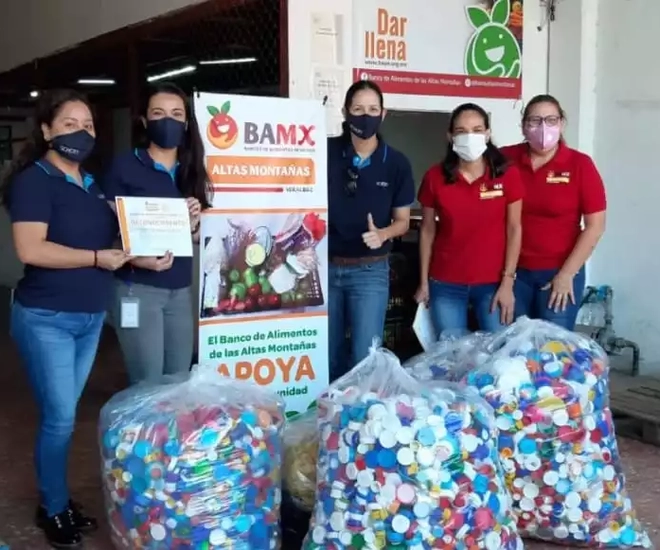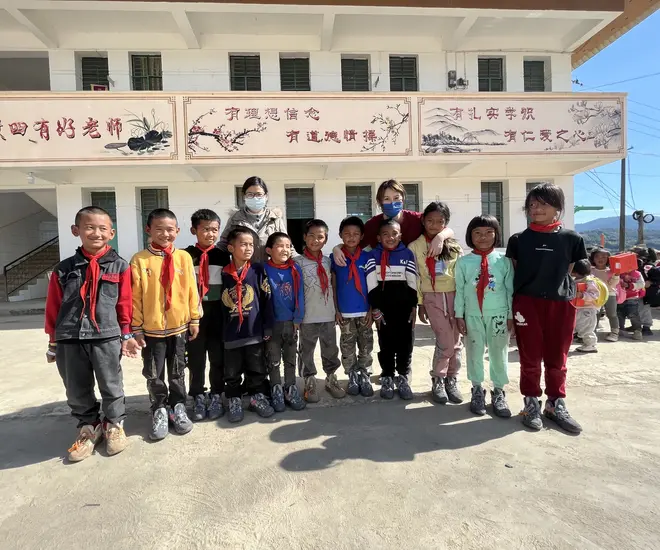
Social Responsibility
One of the fundamental ideas of our owner, the Carl Zeiss Foundation, is the special responsibility we have for employees and society. Health, safety and social security have top priority for us. However, our responsibility does not end at the factory gates. That is why we are also committed to the community around our locations around the world.
Our social engagement
We are focusing our social engagement on three areas: education and science, social and cultural affairs and sports.
Education and science: Jugend forscht
For many of today’s senior technicians, engineers and natural scientists, participation in the “Jugend forscht” competition for young researchers shaped their future careers. As the most important competition for schoolchildren and young people in the field of science and technology in Germany, the goal is to get young people excited about STEM subjects (science, technology, engineering, and mathematics) and to find and promote talent. SCHOTT has been a major sponsor of the regional Mainz-Rheinhessen competitions of “Jugend forscht” and “Schüler experimentieren” since 1970.
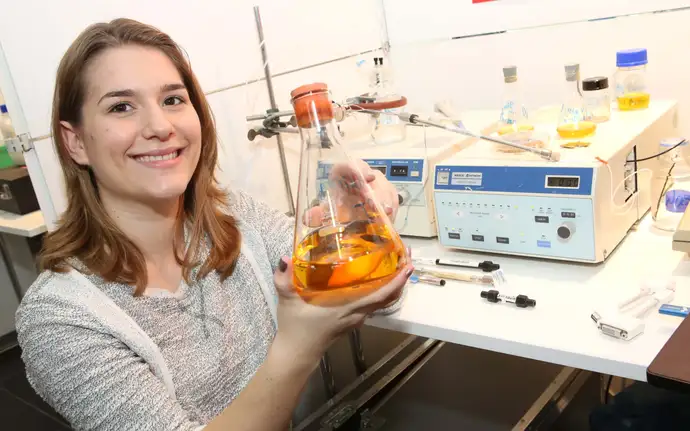
Social and cultural affairs: Act for Children / Run for Children®
The Run for Children® charity run was our social commitment flagship project until 2019. Over a period of 14 years, participants generated more than €2 million, which was given to charitable organizations in the Mainz region that support sick, disabled, and socially disadvantaged children.
Due to the pandemic, we changed “Run for Children” to “Act for Children” in 2020. People were able to actively participate in the new virtual event with sporting and musical performances, as well as a colorful children’s program via livestream. The core idea of “Together for a good cause” remains the same.
Sports: TSV SCHOTT Mainz, SV SCHOTT Jena
There’s a long tradition of promoting recreational sports at SCHOTT. As early as 1896, company founder Otto Schott supported the founding of a sports club close to the plant at the founding site in Jena (today SV SCHOTT Jena). After the opening of the new main plant in Mainz, the company supported the establishment of TSV SCHOTT Mainz in 1953, and continues to do so today. From the beginning, both clubs were open to all citizens. The two clubs in Mainz and Jena are among the largest recreational sports clubs in Rhineland-Palatinate and Thuringia, and are managed independently of the company under their own responsibility.

Our role models: Otto Schott and Ernst Abbe
Our responsibility to our employees has been deeply anchored in our corporate culture since Otto Schott founded the company over 130 years ago. In 1896, Ernst Abbe issued the statute of the Carl Zeiss Foundation, which guaranteed employees historically unique social rights. These rights included the prohibition of discrimination, protections against dismissal, minimum wage, paid vacation, profit sharing, and a company pension – all exceptional for the time.Regional projects
Diversity & Inclusion
As a global company, we promote and demand a global culture of equal opportunity and diversity.
We are committed to building a culture of diversity and inclusion in which we encourage and support our employees. Currently, our focus is the SCHOTT Best Teams program, which sets and implements essential diversity and inclusion goals.

Health & Wellbeing
Our employees are vital to our success. As a responsible employer, we show them respect, trust, and appreciation.
Our highest priority is the health and safety of our employees. This is the basis for our integrated EHS environmental, health, and safety management system. The employee-related part of this system is based on the international ISO standard 45001 (occupational safety and health) and thus ensures high standards at all sites.
But health and safety mean much more than occupational health and safety, which is why our holistic health management system includes personal health care, physical fitness, and nutritional advice. Our slogan is: "Let's stay healthy together!" And to raise awareness among all employees, we hold the annual "SCHOTT Health Day" at all locations.

Human Rights
A main component of our human rights compliance is the risk analysis as well as raising awareness among all stakeholders on how to deal with human rights risks. Our aspiration for an adequate handling of human rights risks is their prevention as well as the constructive improvement of existing grievances along our value chains.
Learn more about Code of Conduct for Suppliers:
Download Code of Conduct for Suppliers (PDF)
Accordingly, we encourage all employees and suppliers to report violations of human rights and environmental regulations via our whistleblowing system, the SCHOTT Integrity Helpline.

The following human rights risks are currently in the special focus of our measures:
Inclusion and freedom from discrimination
We at SCHOTT demand and promote the establishment of interdisciplinary and intercultural teams. Diversity is a main part of our corporate culture and is reflected in our teams. Different values and perspectives are just as important as different nationality, gender and experience. In our culture, discrimination, insult and harassment have no chance. We will continue to drive forward our previous efforts in this regard and continuously improve our prevention work.
Prevention of child labor and modern slavery
We observe the prohibition of child labor and reject all forms of child labor, forced labor, slavery and practices similar to slavery, human trafficking, as well as the recruitment, procuring or offering for illicit activities. Corresponding regulations were always stated in our Code of Conduct.
This has also been formalized in SCHOTT's Statement of Principles on Human Rights. It describes our efforts to act ethically as well as responsibly and supplements our existing regulations for the fulfillment of legal due diligence obligations.
Compliance with fundamental laws is of great importance to SCHOTT in this regard:
-
Rules of the Universal Declaration of Human Rights (UDHR) as well as the European Convention on Human Rights (ECHR)
-
The five fundamental principles and rights at work of the International Labor Organization (ILO)
-
OECD Guiding Principles
-
The ten principles of the UN Global Compact
In addition, we support the United Nations 2030 Agenda for Sustainable Development and aim to contribute to the achievement of the Sustainable Development Goals (SDGs) through our actions.
Other key areas of responsibility
Want to know more? Let's talk
If you need more information about our commitment to sustainability, please contact us.
Contact us




